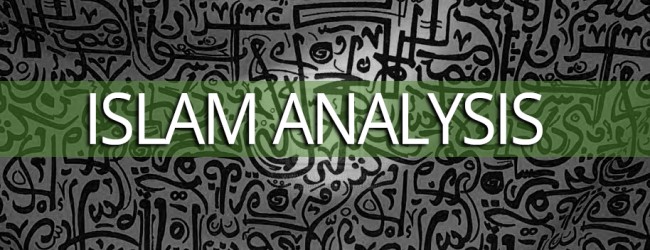
Published on 16 September 2011 in SciDev.Net
Plans for science collaboration in the Muslim world aren’t working and need a major revamp, says Athar Osama.
As SciDev.Net’s Islam Analysis reaches its first year of publication, it is a good time to reflect on the major themes in science development — and politics — in the Islamic world.
We have covered the need for a science vision within countries in the Organisation of Islamic Cooperation (OIC) and collaboration among them; the role and purpose of science diplomacy — particularly, US president Barack Obama’s science initiative towards the Islamic world; and the need for a social contract for science.
But so far, the story of science and innovation in OIC countries is one of missed targets and dashed expectations. And fundamental questions have now arisen about the purpose of OIC’s science project, in particular about the role of cooperation.
If it isn’t working, despite the best efforts of those involved, policymakers must be doing something wrong — and trying to do more of the same is unlikely to deliver. To change course, they may need to go back to the drawing board on cooperation.
Collaboration: struggling for take-off
In the last decade, several Muslim countries —Egypt, Iran, Malaysia, Pakistan, Qatar, Saudi Arabia and Turkey — have renewed their investment in higher education and scientific research.
But even as budgets increase, there has not been a sea change in the quantity or the nature of scientific activity in OIC science collaboration.
A number of initiatives created to spark collaboration are struggling to take off and make a meaningful impact, such as a pan-Islamic science fund and the Science Technology and Innovation Organisation (STIO).
COMSTECH — OIC’s standing committee on scientific and technological cooperation — is also finding it hard to attract funding to deliver on its agenda. STIO, its new implementation arm, has not yet been able to call in cash promised by Iran, Pakistan, Saudi Arabia and Syria. Generally, the performance of inter-Islamic networks leaves much to be desired.
And Science Vision 1441 is slowly dying out. With only nine years left, most countries will find its targets difficult to achieve. The document is ambitious but lacks meaningful commitment from member countries, and a taskforce set up by OIC to encourage their support has been unable to deliver.
What then is the future of scientific and technological cooperation within the Islamic world?
Why Islamic science cooperation, anyway?
First, though, it is worth asking why OIC member countries should collaborate in any case.
Anwar Nasim, who recently retired as science advisor to COMSTECH, has considered this question for a long time. “We have worked hard at COMSTECH to promote science in the Islamic world through greater OIC science collaboration,” he says. But he admits that progress has been far from substantial.
If hard work brings less than satisfactory results, there is clearly something else amiss. That ‘something’ is a convincing case for inter-country collaboration.
One reason is that some OIC member countries may not be ‘natural’ partners. For example, many are more attracted to collaborations with advanced countries in Europe and the Americas at both an individual and institutional level.
Nasim goes a step further, saying that we should even question whether it makes sense to focus on the Islamic world as an organising block for science cooperation. “No other religious community has sought to create this kind of a block. There is no ‘Jewish science’ or ‘Hindu science’,” he says. “Why should there be Islamic science?”
It is clear that we need to re-examine the logic of collaboration among Islamic countries.
Needed: course correction
Today, scientific development in the Islamic world is the product of the commitment of national governments. This is unlikely to change in the foreseeable future — there are significant political roadblocks to translating national commitments into scientific cooperation between OIC countries. Several well-meaning but stalled projects attest to this.
To turn things around, OIC’s science leadership needs a constructive argument that will persuade governments to pool their science resources.
This isn’t as difficult as it may sound. But it requires a reshaping of OIC science diplomacy to convince member states that through collaboration their collective science investment will be greater than the sum of its parts, and will result in greater credibility.
A good starting point would be an institutional peer review of the OIC bodies responsible for advancing the science and innovation agenda. This review, which should be carried out by independent experts appointed by the secretary general, must identify the institutional and policy roadblocks to achieving objectives and make recommendations for removing them.
Going back to the drawing board and starting with fresh assumptions and a realistic assessment of constraints may also put new initiatives on the OIC agenda, modify some, and abandon others.
It is time for OIC to demonstrate the kind of leadership and lateral thinking that will transform the agenda for science cooperation, if we are to see real progress towards science for development in the Islamic world. We need a cooperation framework that has teeth and delivers meaningful impact.
Athar Osama is a London-based science and innovation policy researcher and consultant, and director of Middle East and Asia for a technology policy consulting firm. He is the founder of localhost/muslim.
You must be logged in to post a comment.